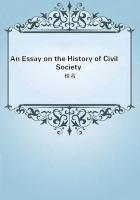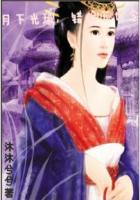The principal event in his life, so far as we know, was the quarrel with his master Callimachus, which was most probably the cause of his condemnation at Alexandria and departure to Rhodes.This quarrel appears to have arisen from differences of literary aims and taste, but, as literary differences often do, degenerated into the bitterest personal strife.There are references to the quarrel in the writings of both.Callimachus attacks Apollonius in the passage at the end of the "Hymn to Apollo", already mentioned, also probably in some epigrams, but most of all in his "Ibis", of which we have an imitation, or perhaps nearly a translation, in Ovid's poem of the same name.On the part of Apollonius there is a passage in the third book of the "Argonautica" (11.927-947) which is of a polemical nature and stands out from the context, and the well-known savage epigram upon Callimachus.(2) Various combinations have been attempted by scholars, notably by Couat, in his "Poesie Alexandrine", to give a connected account of the quarrel, but we have not data sufficient to determine the order of the attacks, and replies, and counter-attacks.The "Ibis" has been thought to mark the termination of the feud on the curious ground that it was impossible for abuse to go further.It was an age when literary men were more inclined to comment on writings of the past than to produce original work.Literature was engaged in taking stock of itself.Homer was, of course, professedly admired by all, but more admired than imitated.Epic poetry was out of fashion and we find many epigrams of this period--some by Callimachus--directed against the "cyclic" poets, by whom were meant at that time those who were always dragging in conventional and commonplace epithets and phrases peculiar to epicpoetry.Callimachus was in accordance with the spirit of the age when he proclaimed "a great book" to be "a great evil", and sought to confine poetical activity within the narrowest limits both of subject and space.Theocritus agreed with him, both in principle and practice.The chief characteristics of Alexandrianism are well summarized by Professor Robinson Ellis as follows: "Precision in form and metre, refinement in diction, a learning often degenerating into pedantry and obscurity, a resolute avoidance of everything commonplace in subject, sentiment or allusion." These traits are more prominent in Callimachus than in Apollonius, but they are certainly to be seen in the latter.He seems to have written the "Argonautica" out of bravado, to show that he could write an epic poem.But the influence of the age was too strong.Instead of the unity of an Epic we have merely a series of episodes, and it is the great beauty and power of one of these episodes that gives the poem its permanent value--the episode of the love of Jason and Medea.This occupies the greater part of the third book.The first and second books are taken up with the history of the voyage to Colchis, while the fourth book describes the return voyage.These portions constitute a metrical guide book, filled no doubt with many pleasing episodes, such as the rape of Hylas, the boxing match between Pollux and Amyeus, the account of Cyzicus, the account of the Amazons, the legend of Talos, but there is no unity running through the poem beyond that of the voyage itself.
The Tale of the Argonauts had been told often before in verse and prose, and many authors' names are given in the Scholia to Apollonius, but their works have perished.The best known earlier account that we have is that in Pindar's fourth Pythian ode, from which Apollonius has taken many details.The subject was one for an epic poem, for its unity might have been found in the working out of the expiation due for the crime of Athamas; but this motive is barely mentioned by our author.
As we have it, the motive of the voyage is the command of Pelias to bring back the golden fleece, and this command is based on Pelias' desire to destroy Jason, while the divine aid given to Jason results from the intention of Hera to punish Pelias for his neglect of the honour due to her.The learning of Apollonius is not deep but it is curious; his generalsentiments are not according to the Alexandrian standard, for they are simple and obvious.In the mass of material from which he had to choose the difficulty was to know what to omit, and much skill is shown in fusing into a tolerably harmonious whole conflicting mythological and historical details.He interweaves with his narrative local legends and the founding of cities, accounts of strange customs, descriptions of works of art, such as that of Ganymede and Eros playing with knucklebones, (3) but prosaically calls himself back to the point from these pleasing digressions by such an expression as "but this would take me too far from my song." His business is the straightforward tale and nothing else.The astonishing geography of the fourth book reminds us of the interest of the age in that subject, stimulated no doubt by the researches of Eratosthenes and others.
The language is that of the conventional epic.Apollonius seems to have carefully studied Homeric glosses, and gives many examples of isolated uses, but his choice of words is by no means limited to Homer.He freely avails himself of Alexandrian words and late uses of Homeric words.Among his contemporaries Apollonius suffers from a comparison with Theocritus, who was a little his senior, but he was much admired by Roman writers who derived inspiration from the great classical writers of Greece by way of Alexandria.In fact Alexandria was a useful bridge between Athens and Rome.The "Argonautica" was translated by Varro Atacinus, copied by Ovid and Virgil, and minutely studied by Valerius Flaccus in his poem of the same name.Some of his finest passages have been appropriated and improved upon by Virgil by the divine right of superior genius.(4) The subject of love had been treated in the romantic spirit before the time of Apollonius in writings that have perished, for instance, in those of Antimachus of Colophon, but the "Argonautica" is perhaps the first poem still extant in which the expression of this spirit is developed with elaboration.The Medea of Apollonius is the direct precursor of the Dido of Virgil, and it is the pathos and passion of the fourth book of the "Aeneid" that keep alive many a passage of Apollonius.
ENDNOTES: (1) "Or of Naucratis", according to Aelian and Athenaeus.(2) Anth.Pal.xl.275.(3) iii.117-124.(4) e.g.compare "Aen." iv.305 foll.with Ap.Rh.iv.355 foll.; "Aen." iv.327-330with Ap.Rh.I.897, 898; "Aen."iv.522 foll., with Ap.Rh.iii.744 foll.















